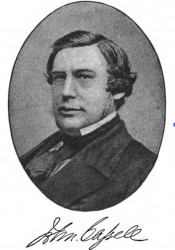Altick & Dickens in Conversation (Bianca)
- John Cassell → Education and Class in Hard Times
One of John Cassell’s books Popular Educator helped many individuals become educator. For instance, Altick writes, “Thomas Hardy taught himself German from the Popular Educator; Thomas Burt, the labor politician, used it for English, French and Latin lessons; and with its aid the future great philologist, Joseph Wright, atoned for his almost complete lack of formal education. ‘The completed book,’ said Wright, ‘remained my constant companion for years. I learned an enormous lot from it’ ” (303). By giving examples as to how a book can help educate an individual it is easy to also notice how this form of education mainly served those of higher class. The idea of education and class is also seen in Hard Times specifically looking at Stephen and Bounderby, The reader can notice how they are both from different classes and have a different from of education mainly by looking their dialogue and dialect. In the scene where Bounderby is firing Stephen Dickens writes, “ ‘You can finish off what you’re at,’ said Mr. Bounderby, with a meaning nod, ‘and then go elsewhere.’
‘Sir, yo know weel,’ said Stephen expressively, ‘that if I canna get work wi’ yo, I canna get it elsewheer.’ (Book II Chapter V). Through Stephen’s dialect and dialogue, the reader can notice that Stephen doesn’t speak like Bounderby, and he is of a lower class than Bounderby. However, in Altick’s article there seems to be the idea that if Stephen would have had his hand on books (if accessible to him), Stephen would have been able to self educate himself as to how to speak properly. This just demonstrates how the higher class did have it’s advantages specifically in books because books were the one that assisted them in becoming more educated throughout the time.

